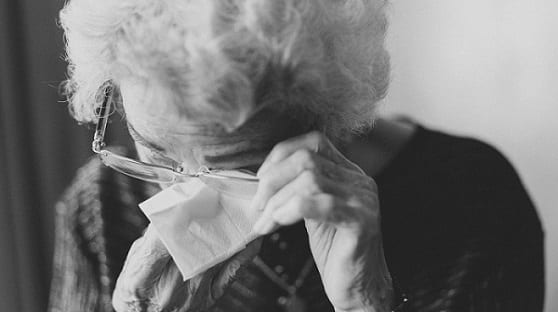Elderly Women Who Have Been Sexually Abused.
Sexual abuse of the elderly is one of the most unfathomable crimes and it’s critical to shed light on it. Women over the age of 70 who suffer from Alzheimer’s or dementia are more likely to become victims of abuse.
This is because most abusers look for a victim that they believe is weaker or less likely to report them for their crime. Unfortunately, victims of sexual assault who also suffer from cognitive decline can also have a more traumatic response after an incident of sexual abuse.
Effects of Sexual Abuse in Elderly Women
A common misconception is that elderly people are depressed or sad because they are more conscious of death. In reality, the opposite is more often true. Most seniors are happy with their accomplishments and feel satisfied with life. If this isn’t the case with your loved one, it could indicate abuse. Depression can be a sign of elder abuse and possibly even sexual or emotional abuse.
Other effects of sexual abuse in the elderly include:
- PTSD (Post Traumatic Stress Disorder)
- Flashbacks
- Loss of appetite
- Lack of participation in social events
- Emotional withdrawal
Belonging to an older generation often stops victims from reporting abuse. They may feel ashamed, weak, angry, anxious or scared. It becomes the responsibility of doctors and family members to take action and ask questions.
Sexual abuse in the elderly at nursing homes can be detected if you notice any of the following warning signs:
- Change in behavior
- Bruising or bleeding on the breasts or genitals
- Torn or bloody underwear
- Frequent UTIs (urinary tract infections)
Sexual abuse can also impact an entire family and community. Family members can often feel guilt or shame for having placed their loved one in someone else’s care. Now, that loved one has become the victim of a horrific crime.
Who Commits Sexual Abuse?
As with many sexual abuse cases, the perpetrator is often someone the victim knows and felt they could trust. Studies show that abusers are more likely to be male and more likely to be a spouse. If sexual contact is not consensual, even with a spouse, it’s considered abuse and should be reported immediately.
Perpetrators of sexual abuse are more likely to:
- Be socially withdrawn
- Have a history with law enforcement
- Problems with drugs or alcohol
- Display signs of major stress
- Have mental or physical health issues
- Be unemployed
- Have financial problems
It’s crucial to know the people caring for your loved one. If you are a nurse or caretaker, it’s just as important to know family members, friends or others who come to visit the resident.
Society often portrays the elderly as fragile and unable to think and care for themselves. This can make a nursing home resident a target and be a cause for sexual abuse. The moments when your family member is recovering from a surgery or procedure can also be a time of vulnerability.
As we age our cognitive abilities change. The way we think and process information may slow down due to age or disease. When trauma or abuse is suspected in someone with cognitive decline, it’s important to directly approach the issue with the victim. Sometimes the best way to care for our loved ones is to have uncomfortable conversations.
Reporting Sexual Abuse in the Elderly
Stay involved in the care of your loved one. Know who is working directly with them and understand the living arrangements. Are male and female residents living together? Do they spend time unsupervised? Have the staff and nurses completed background checks? These are just a few proactive questions that you can ask to help protect your loved one.
If you feel someone you know or care for has been a victim of sexual abuse, please notify the police immediately. You may also report elder abuse to the local Adult Protective Services and can speak to an ombudsman if the person lives at a nursing home.
Sources:
“Elder Abuse and Women’s Health”. American College of Obstetricians and Gynecologists. Retrieved from: https://www.acog.org/Clinical-Guidance-and-Publications/Committee-Opinions/Committee-on-Health-Care-for-Underserved-Women/Elder-Abuse-and-Womens-Health. Accessed on November 5, 2018.
“Elder Abuse”. Office of Women’s Health. Retrieved from: https://www.womenshealth.gov/relationships-and-safety/other-types/elder-abuse. Accessed on November 5, 2018.
“Understanding Elder Abuse and Neglect”. Mobile Help. Retrieved from: https://www.mobilehelp.com/resources-information/senior-health/elder-abuse.stml. Accessed on November 5, 2018.
“Elder Sexual Assault”. Pennsylvania Department of Aging and the Pennsylvania Commission on Crime and Delinquency. Retrieved from: https://www.nsvrc.org/sites/default/files/Elder_Sexual_Assault_Technical-Assistance-Manual.pdf. Accessed on November 5, 2018.
“Sexual Coercion”. Office of Women’s Health. Retrieved from: https://www.womenshealth.gov/relationships-and-safety/other-types/sexual-coercion. Accessed on November 5, 2018.

